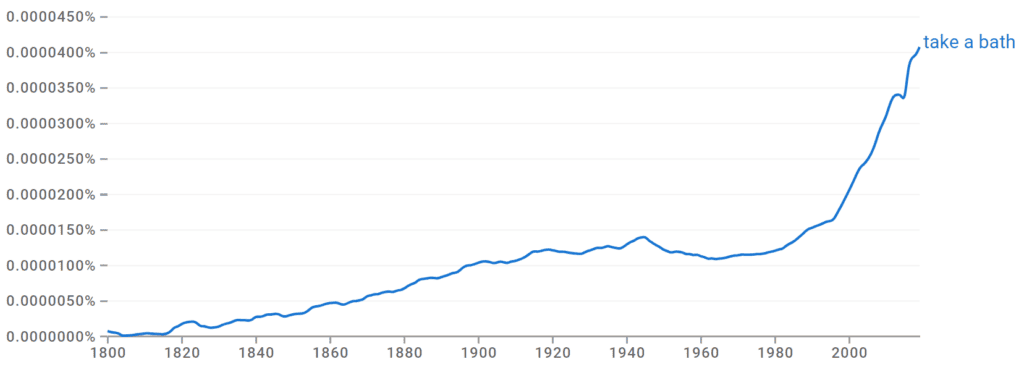The idiom take a bath means experiencing a significant financial loss. For instance, investing heavily in a failing business venture can result in taking a bath, leaving you with substantial debt and little to show for it. This expression originated in the 1920s in the context of gambling, possibly with earlier British origins.
Idioms, like take a bath, are figurative expressions where words together convey a unique meaning beyond their literal definitions. They are essential to the English language because they add depth and engagement.
Please keep reading to explore the idiom’s meaning, where it originated from, and how to use it in a modern context through various examples.
Take a Bath Idiom Meaning

To take a bath means to sustain a large financial loss, to come out on the losing end of a financial investment, or to be pushed to bankruptcy. It is an extension of the idiom to be cleaned out. If one is cleaned out, one is divested of all one’s money.
For example, I avoid gambling with large amounts of money when we visit Las Vegas because I don’t want to end up taking a bath and losing all my shopping money. Gambling can be fun, but not if it means I must miss out on something I want to buy later.
Using Taking a Bath in a Sentence
- Despite his high hopes, John took a bath in the stock market when the company’s shares plummeted.
- Sarah invested all her savings in a risky business venture and ended up taking a bath when the project failed.
- After buying a rundown property and investing heavily in renovations, Mark took a bath when he couldn’t sell it for a profit.
Taking a Bath Synonyms
- Lose money
- Take a hit
- Suffer a loss
- Experience a financial setback
- Be out of pocket
- Go in the red
- Face a financial downfall
- Take a financial tumble
Take a Bath Idiom Origins

The idiom “take a bath” emerged in gambling circles during the 1920s, signifying a financial wipeout. Its precise origin remains uncertain, but it may be traced back to an older expression with a similar connotation.
Bath, a town in southwestern England renowned for its therapeutic sulfuric waters, has been a retreat since Roman times. Visitors often used trips to Bath as an excuse to distance themselves from society, sometimes due to scandal.
At some point, “go to Bath” evolved into a taunt, meaning “go away and don’t return” or “dismissed.” Documentation of this usage dates back to 1830s politics, as observed in The Times in January 1835:
“Mr. Hobhouse said he never had a conversation on politics with the learned serjeant in India… ‘Go to Bath’ as a way to say ‘you are finished, or go away’ is a plausible explanation for dismissing a person after they’ve been financially wiped out in a gambling hall.”
While this theory can’t be proven definitively, it offers a plausible explanation for the idiom’s origin.
Let’s Review
The idiom to take a bath means to have lost money and was first documented in relation to gambling halls of the 1920s. It means to be wiped clean or cleaned out financially. It may be related to the English insult or taunt go to Bath, meaning to go away and not return.
Regardless of how it first came into use, the figurative use of the expression has mostly fallen into disuse in the modern day. However, if you want to sound sophisticated, you can use it in your sentences when discussing financial failure.
